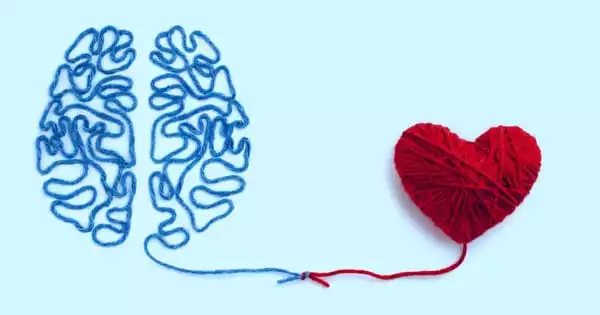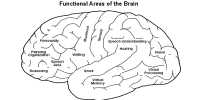The extraordinary developmental processes by which a microscopic assembly of embryonic neural cells gives rise to the human brain—the most complex physical object in the known universe—have been among the most compelling stories emerging from the science of child development in the early twenty-first century. There is ample evidence that parents can and do exert influence over their offspring. There is also significant evidence that children’s genetic makeup influences their own behavioral features as well as how their parents treat them.
Children of clinically depressed mothers are three times more likely to develop depression than their low-risk counterparts. Researchers are striving to understand the neuronal roots of the risk, and some studies have revealed altered reward processing in at-risk children as young as six. The question of whether children with a parental history of depression have a biological predisposition to decreased neuronal reward responding or whether it is primarily influenced by social variables remains unanswered. New research indicates that the muted responses were dependent on maternal feedback, implying the latter.
The study appears in Biological Psychiatry: Cognitive Neuroscience and Neuroimaging, published by Elsevier.
In our study, moms’ own history of depression was not associated with altered brain responses to reward in early school-age children. Rather, this background influenced children’s brain responses only when combined with mothers’ parenting actions, such as the ability to acknowledge, imitate, or build on their child’s positive emotions.
Dr. Morgan
Researchers have long noticed alterations in brain activity related with adult depression, notably in a brain area known as the ventral striatum (VS), which is associated with motivation, pleasure, and goal-directed behavior. Similarly, multiple studies have found that striatal reactions to pleasant events are dampened in adolescent offspring of sad parents, predicting subsequent depression development. Recent research, however, indicates that these brain alterations can occur long before the adolescent years, when the risk of depression normally increases.
Judith Morgan, PhD, of the University of Pittsburgh in Pittsburgh, Pennsylvania, USA, recruited 49 children aged 6 to 8 who had no history of psychiatric disease for the current study. Half of the moms had a history of clinical depression, while the other half had no psychiatric history. Children received functional magnetic resonance imaging while playing a video game in which they had to determine which of two doors contained a concealed token in order to evaluate reward-related brain activity (fMRI).
Depression can impair parents’ ability to engage in emotional socialization, which is the process through which children learn from their parents’ reactions to their emotional responses. Positive socialization reactions include recognition, imitation, and elaboration, but negative or emotionally draining parental responses might be dismissive, invalidating, or punitive.

Mothers in the study completed a lengthy questionnaire meant to assess parental emotional socialization by presenting a dozen situational vignettes of children displaying positive emotions and gathering parents’ reactions to them. The researchers discovered that children with a maternal history of depression were more likely to have lower reward-related brain activity in the VS, but only if their mothers reported less enthusiastic and more dampening responses to their children’s pleasant feelings.
“In our study, moms’ own history of depression was not associated with altered brain responses to reward in early school-age children,” Dr. Morgan explained. “Rather, this background influenced children’s brain responses only when combined with mothers’ parenting actions, such as the ability to acknowledge, imitate, or build on their child’s positive emotions.”
“This is encouraging news because interventions aimed at coaching parents to encourage positive emotions in their children may have a powerful impact on child reward-related development, particularly in families with children who may be at higher risk due to a family history of depression,” Dr. Morgan added.
Cameron Carter, MD, Editor of Biological Psychiatry: Cognitive Neuroscience and Neuroimaging, said,
“This important work provides a great example of how clinical neuroscience can reveal neural mechanisms underlying depression and discover new links that may explain why one person has depression and another does not. These links take us beyond clinical observation and therapy alone to open new avenues (such as parenting interventions) for prevention that can promote resilience and wellness.”
Not all socialization takes place during childhood. When people take up entry-level jobs, they are socialized into the customs and standards of an occupational culture. When adults take on new life roles, they must socialize and resocialize (e.g. marriage, parenthood). However, while examining the role of parents, we are primarily concerned with childhood socialization. Some of the socialization that occurs throughout childhood is anticipatory in nature, serving to prepare children for adaption to a fairly diverse range of life roles and circumstances that they will face as they get older. However, childhood socialization also refers to the training of children in acceptable forms of conduct for the period of childhood they are now in.
















